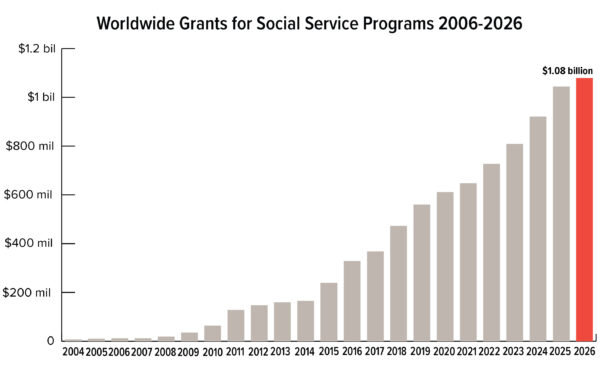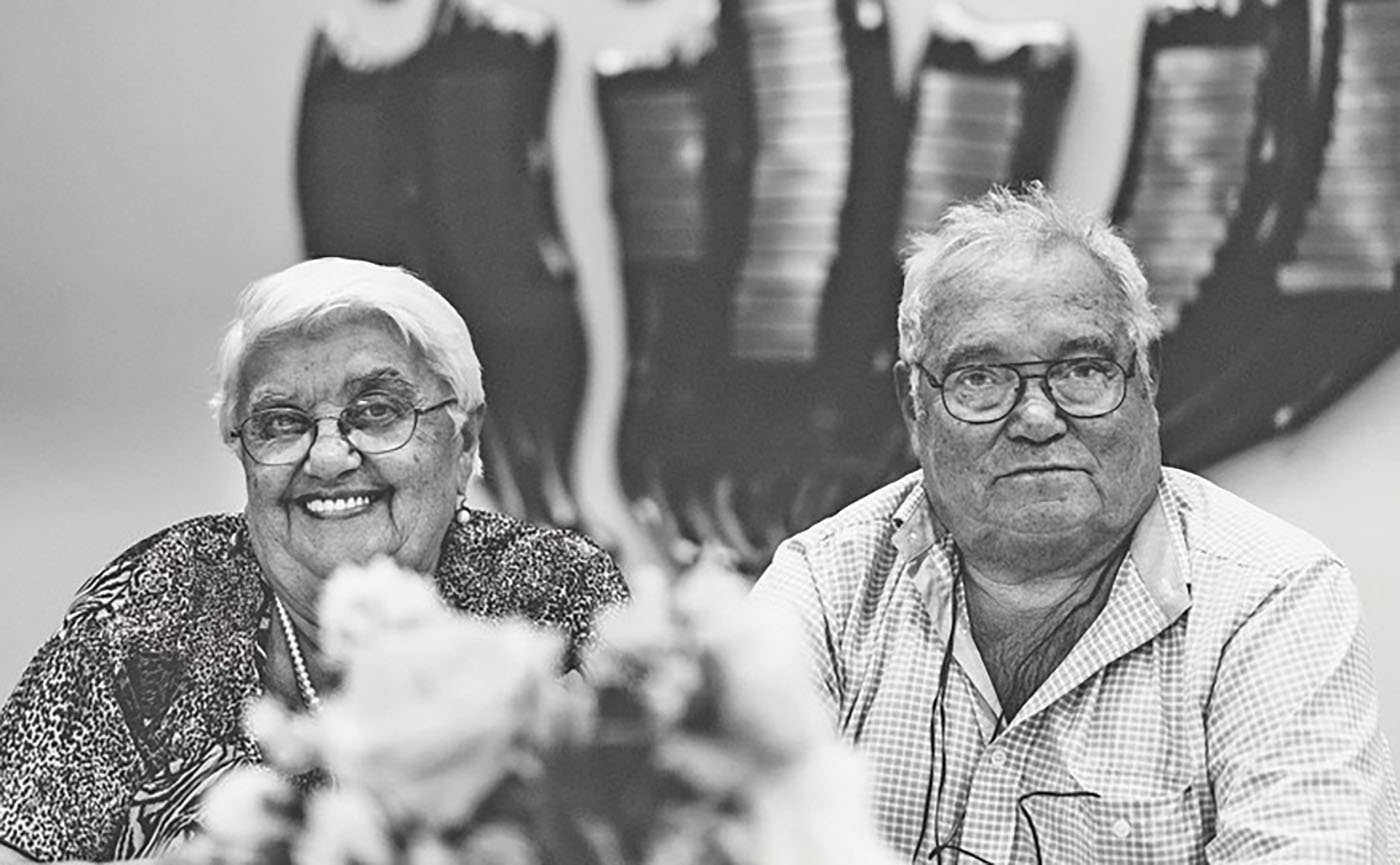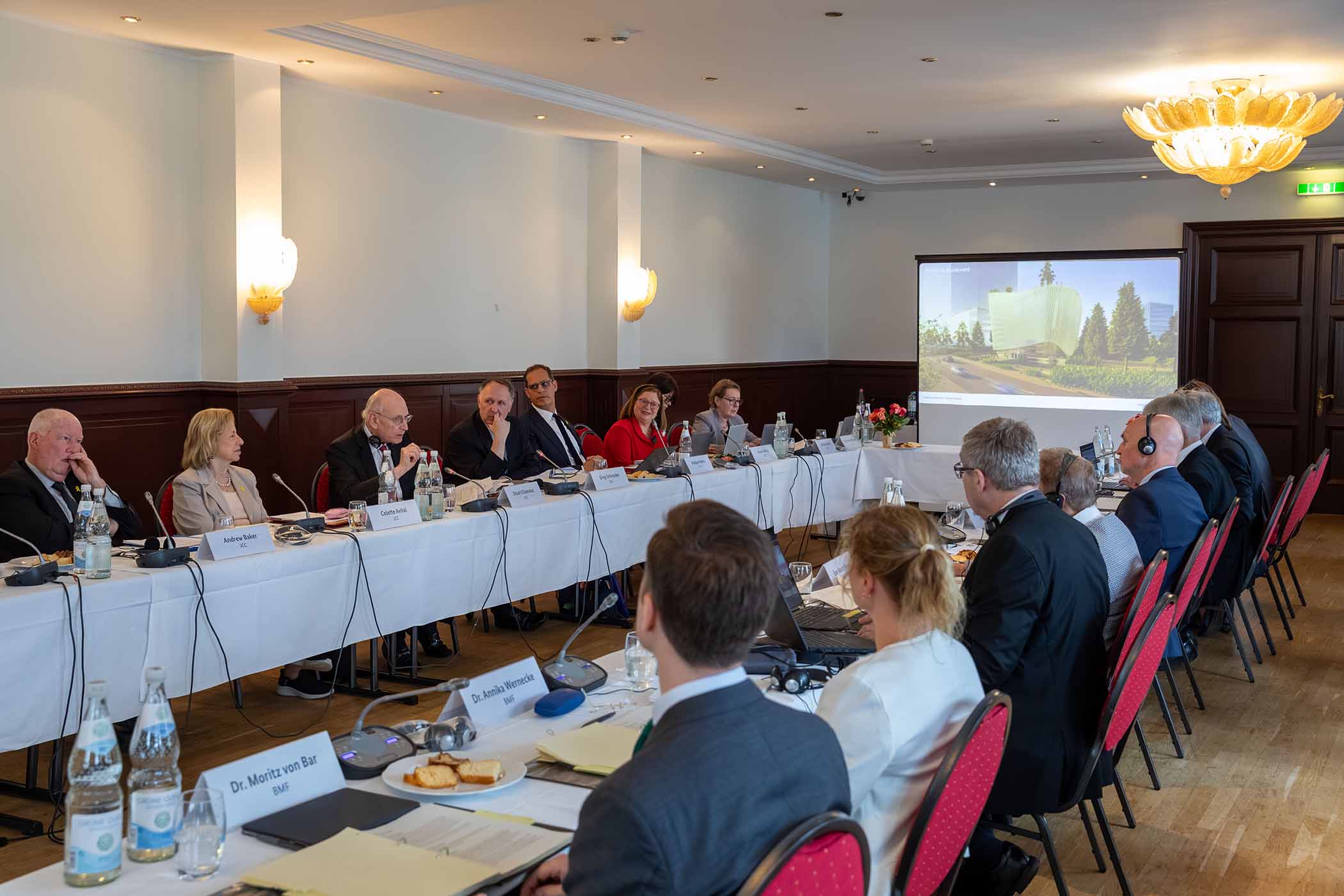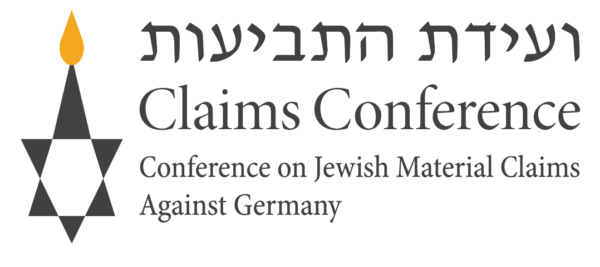Over $1 Billion In Home Care Secured By The Claims Conference For Holocaust Survivors Globally — Largest Social Welfare Budget In The Organization’s History
Claims Conference in the Media | Press Inquiries | Publications | Videos | Updates
In Addition To Home Care And An Extended Commitment To Holocaust Education, Negotiations With The German Government Result In Additional Hardship Fund Supplemental Payments Impacting More Than 127,000 Holocaust Survivors Around The World.
NEW YORK, NEW YORK: October 29, 2025—Today, the Conference on Jewish Material Claims Against Germany (Claims Conference) announced the outcomes of its latest negotiations with the German Federal Ministry of Finance on behalf of Holocaust survivors living around the world. The results include an increase in home care funding for Holocaust survivors, bringing the amount for 2026 to €923.9 million ($1.08 billion USD), the largest budget for survivor home care in the organization’s history.

Gideon Taylor, President of the Claims Conference, said, “This historic increase to home care funding reflects the complex and growing needs of Holocaust survivors worldwide. While we are losing survivors at a rapid pace each year, those who remain are older, frailer and in greater need than ever before. This budget is critical in providing each of them the opportunity to age in place, a dignity that was stolen from them in their youth.”
The average age of survivors receiving home care through Claims Conference funding has increased from 86 in 2018 to 88.5 in 2024. The data clearly indicate that those survivors still with us are not only aging, but are also experiencing more complicated health needs and increased disability. For example, a survivor in 2018 who needed assistance with light-duty housework during the week now depends on those services daily for more personal care such as showering and dressing. During that same time, the number of clients who qualify for full-time assistance due to extreme disability — such as Alzheimer’s disease, Parkinson’s disease and dementia — has nearly doubled.
Ambassador Stuart E. Eizenstat, Special Negotiator for the Claims Conference Negotiations Delegation, said, “It must be understood: This funding increase is occurring against a backdrop of challenging fiscal policy. Germany is facing higher energy expenses and an enormous increase in military spending. The importance of this year’s negotiations is not simply that we were successful in obtaining supplemental funding during a difficult budgetary year. The criticality is, despite very real budgetary constraints, the German government remains steadfast in its support for Holocaust survivors and Holocaust education. Increased funding for home care, for support for the poorest of Holocaust survivors, and for ongoing Holocaust education is crucial.”
Home care assistance allows survivors to live safely and comfortably in their own homes as they age, which is particularly important for individuals who were torn from their families and homes and faced unthinkable atrocities in their youth.

“I’m almost blind and have the use of only one arm. Since my wife passed away several years ago, life hasn’t been easy,” said survivor Simon Reznik. “My caregiver is my light — I wait for her to bring life back into my days. Without her help, I couldn’t manage even the basics. She means the world to me.”
Additionally, the German government has extended its support for Shoah education through 2029, for a total commitment of €175 million ($205 million USD) over the next four years. This investment comes at a critical time, as recent global Holocaust Knowledge and Awareness Surveys clearly indicate a troubling decline in public understanding of key Holocaust facts. Waning knowledge of the Shoah is worrisome in a world where antisemitism is on the rise. Funding for education programs will include initiatives for teacher training, academic research and mass-market mediums, like film, gaming and virtual reality experiences that have a greater potential to reach a wider, more mainstream audience.
Greg Schneider, Executive Vice President of the Claims Conference, said, “It is imperative that we invest in the future of Holocaust education while we still have living witnesses who can share their first-hand testimonies of survival. Building strong curricula, forging new partnerships and employing cutting-edge technology to preserve and share survivor testimonies will ensure the lessons of the Shoah are not forgotten. This is our moral obligation to the survivors of the Holocaust and to the six million who were murdered.”
Ambassador Colette Avital, Holocaust survivor and Claims Conference Negotiation Delegation Member, said, “It is deeply meaningful that, 80 years after liberation, the German government maintains its responsibility to those who suffered and survived. Every survivor — and every rescuer — deserves to live with dignity and to be seen, heard and cared for.”
Detailed outcomes from negotiations include:
- Home care for Holocaust survivors globally will receive an additional €30 million in funding, bringing the overall total to €923.9 million for 2026.
- Holocaust education funding was extended another year with an additional €3 million for a total funding of €48 million in 2029. In total the program will receive €175 million over the next four years, resulting in an overall program allocation since its inception of €276 million.
- The Hardship Fund Supplemental Payments, which were previously guaranteed to be paid annually to eligible Holocaust survivors through until 2027, have been extended through 2028 at an amount of €1,450. This will impact more than 127,000 survivors worldwide.
- Righteous Rescuers – non-Jews who risked their lives to save Jews during the Holocaust – currently receiving a monthly pension from the Claims Conference, will be eligible to receive home care similar to that provided to Jewish survivors, allowing them to live their final years with dignity in their own homes.


